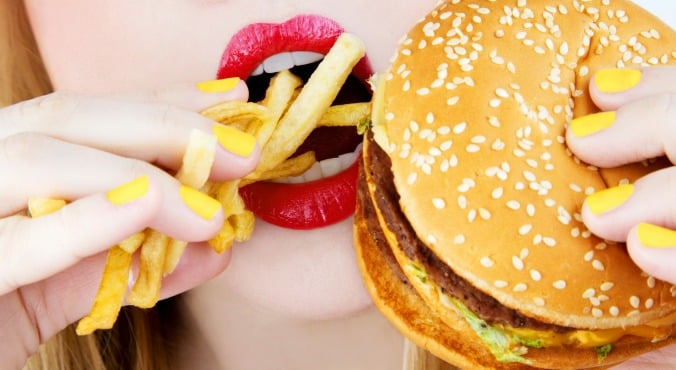
Image: Thinkstock
I have quite a few friends who are trying to lose weight. And they are super-strict with their diets throughout the week.
Monday to Friday, they stick to steamed chicken, veggies, green smoothies and salads. They only drink water and herbal tea. They eat nuts and fruit for snacks and stick to only a few glasses of red wine.
But on Saturday and Sunday, it’s time for their cheat meals. Chocolate, chips, deep-fried fish and chips, fried dumplings, burgers – whatever it is, it’s the calorie blow-outs that get them through the rest of their week of healthy eating. “Cheat meals are amazing!” they say. “Don’t judge me for eating two dinners instead of one!”
The idea of cheat meals fascinate me. They’ve become such a popular concept in the health-and-wellbeing world, and they’re often held up as the best possible way to make sure that you stick to your diet – after all, you still get to indulge in an ‘unhealthy’ food once a week.
But I wasn’t so sure about the entire concept. So I decided to chat to holistic wellness expert, Kirsty Welsh, about it. And it turns out that they’re not such a great idea.
Here are a few of the reasons why you shouldn’t rely on cheat meals as your crutch to get through the rest of the week:
1. They make you feel guilty about eating food.
“I don’t like the word cheat meal,” Kirsty tells me. “It’s pushing guilt and shaming, when we want to focus on nourishing your body.”
It’s so true. Just the phrase “cheat meal” gives the indication that you’re somehow doing a really naughty thing by consuming something that isn’t a steamed piece of lean meat or a vegetable. And this isn’t a good thing – particularly because we really don’t need any more reasons to feel worse about ourselves.
